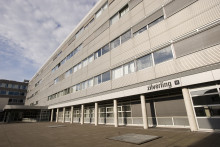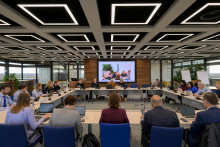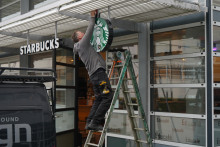In mid-2020, the University Council already stressed the importance of good ventilation in buildings. The previous meeting between the council and the Executive Board brought up the subject again. And today was no different. The topic of discussion was the UT's long-term strategic housing plan, also known as LTSH. Part of that plan is the renovation of Zilverling and Cubicus, planned for 2025 and 2026 respectively.
Windows open
'We are concerned about health risks as a result of ventilation problems', Tim Achterkamp of the UReka student party introduced the subject. 'There are rules in these buildings, about ventilation, about whether or not to be together in the same room. But there are people who are unaware of these rules, or ignore them. It is important to optimise ventilation systems and create more awareness about working in fresh air.'
The specific problem of Zilverling and Cubicus is that there is no mechanical ventilation system. Residents have to open their windows to ventilate. 'And that does not seem a sustainable or desirable solution to us until the planned renovations from 2025 onwards,' said Sjoerd van den Belt (also UReka). He asked the Executive Board if the renovations could not be moved forward.
CO2 monitors
He was given a negative answer by the Executive Board. A large-scale renovation is not possible overnight, explained vice-chairman Machteld Roos. 'But we absolutely underline the importance of good ventilation. It is always good to open a window and let fresh air in. And I myself did notice a difference in the air quality between these buildings and other buildings on the campus. We are having a closer look at what can be changed in these two buildings in the short term.'
Roos also thinks that there is room for improvement in communication. For instance, the UT has CO2 monitors available to measure the air quality in rooms, she said. 'But people may not yet know that they can use these. We want to make them aware of this. We are going to see what we can do about communication in the area of fresh air.'






